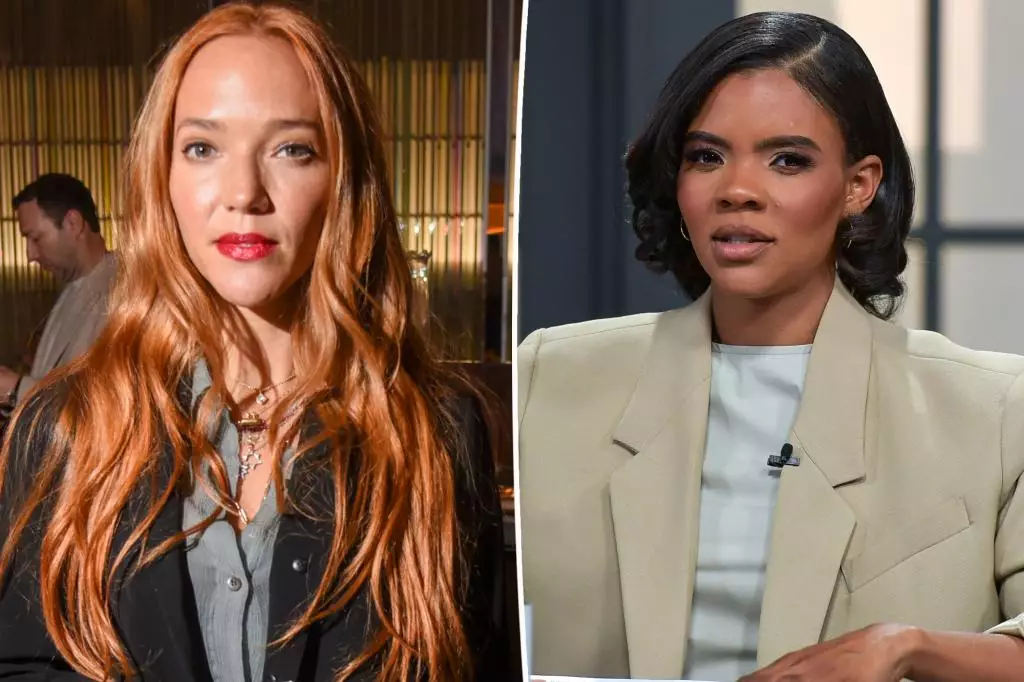Candace Owens, a well-known conservative commentator, recently made headlines for her controversial remarks about the Holocaust. She bizarrely claimed that some accounts of Nazi doctor Josef Mengele’s experiments on Holocaust victims are “propaganda” because they would have been a “waste of supplies.” This statement was met with widespread criticism and backlash from many people, including Jewish artist and activist Zoe Buckman. Buckman publicly called out Owens for her insensitive and ignorant comments, stating that there is never a need to minimize the experience of the Holocaust on any of the groups who perished or survived it.
Not content with just receiving public criticism, Owens took her attack a step further by sending private messages to Buckman. In these messages, Owens accused Buckman and others of believing everything they read as long as they can play the victim. She went on to claim that other groups have also suffered genocide and that this was their story, implying that the Jewish community should not monopolize the narrative of suffering and persecution. This exchange highlighted Owens’ dismissive and defensive attitude towards valid criticisms of her controversial statements.
As the controversy continued to unfold, Owens doubled down on her stance, insisting that she did not “jump in a Jewish artist’s DMs” but was instead responding to being tagged in a “full-throated lie.” She accused Buckman of playing the victim and spreading falsehoods about her. This response can be seen as a classic example of denial and gaslighting, where Owens actively deflects responsibility and shifts the focus onto the individuals criticizing her, rather than reflecting on her own words and actions.
Owens’ departure from the Daily Wire earlier this year, reportedly due to feuding with co-founder Ben Shapiro over Israel and antisemitism, raised further questions about her controversial views and associations. Her work has been praised by white supremacist Nick Fuentes as a “full-fledged war against the Jews,” and the Anti-Defamation League has labeled her as “bigoted.” These allegations and associations paint a troubling picture of Owens’ rhetoric and beliefs, prompting many to question her motives and intentions.
During a podcast appearance, Owens made disturbing remarks about the atrocities committed by the Nazis during the Holocaust. She questioned the validity of some stories about Josef Mengele’s experiments on innocent people, calling them “absurd” and “bizarre propaganda.” Owens went as far as to suggest that even the most evil person in the world would not waste time and supplies on such experiments. These insensitive and ignorant comments further cemented Owens’ reputation as a controversial figure willing to downplay the horrors of the Holocaust.
In response to the intense backlash, a source close to Owens claimed that she never denied that Mengele conducted experiments and that her remarks were taken out of context. Despite this defense, many people remained unconvinced and continued to criticize Owens for her lack of empathy and understanding when it comes to sensitive historical events like the Holocaust. The controversy surrounding Owens’ comments shed light on the dangers of spreading misinformation and downplaying the atrocities committed during one of the darkest chapters in human history.
Candace Owens’ recent remarks about the Holocaust have sparked outrage and condemnation from many quarters. Her dismissive and insensitive comments, coupled with her defensive and deflective responses to criticism, paint a troubling picture of a public figure who is willing to distort historical facts and diminish the experiences of the victims of one of the most horrific genocides in history. As the debate rages on, it is essential to remember the importance of acknowledging and honoring the memory of those who suffered and perished during the Holocaust, and to never forget the lessons of the past.

